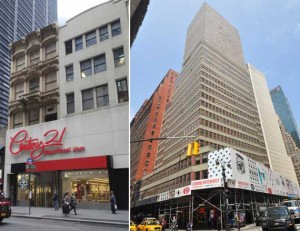Not all real estate families want to bask in the glow of the public spotlight, affix their names in gold on buildings, or run for president. One New York City property dynasty eschewed all that, believing, as the New York Times coined decades ago, “publicity was as demeaning as luxury.”
Their strategy worked — the name Wendel now doesn’t ring a bell like Trump or Durst, but in their heyday in the early 20th century they owned more than 150 properties in Manhattan, valued at over $1 billion in today’s money, the New York Times reported. They also paid more in real estate taxes, beating out even the Rockefellers, according the newspaper.
Nonetheless, the family, known as “the Weird Wendels,” were still fodder for the newspapers. Tour buses would pull up to their mansion at Fifth Avenue and 39th Street to check out the family of six sisters and one brother — all unmarried — who lived frugally and without electricity, the newspaper reported.
The Wendels’ real estate rules included no mortgaging of property and never selling or paying for repairs, the Times reported. By the time the last Wendel died, the family’s portfolio stretched from the Bowery to Fifth Avenue, and from Wall Street to the Upper West Side, the newspaper reported.

John G. Wendel II once had an office at 175 Broadway, left, and the family owned the site that is now 1407 Broadway
The Wendels did have one foe: the city, which wished to buy property from the family for civic uses.
“Fighting off people who want to buy or seize our real estate has been a constant occupation of the family for more than 200 years,” John G. Wendel II, the lone brother and de facto patriarch, told The New York Tribune in an interview cited in his obituary in December 1914. “The city,” he added, “has been the main offender.”
According to the Times account, the family would often let buildings sit vacant for decades until the desired tenant entered the picture. They never rented to saloons, restaurants and theaters. The family was also known for discounting rents of favored tenants, such as the Wright Lumber Company at 1407 Broadway. The rent was raised just once in 67 years, according to a 1931 New York Herald Tribune report.
When the last Wendel, Ella, died in 1931 at 78, over 2,000 people came forward claiming to be relatives. The estate was divided up and dispersed among several charities.
The New York Times cited billionaire Sheldon Solow and the never-sell heirs of Sol Goldman‘s estate as the closest contemporaries to the reclusive family. [NYT] — Dusica Sue Malesevic
